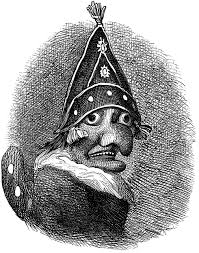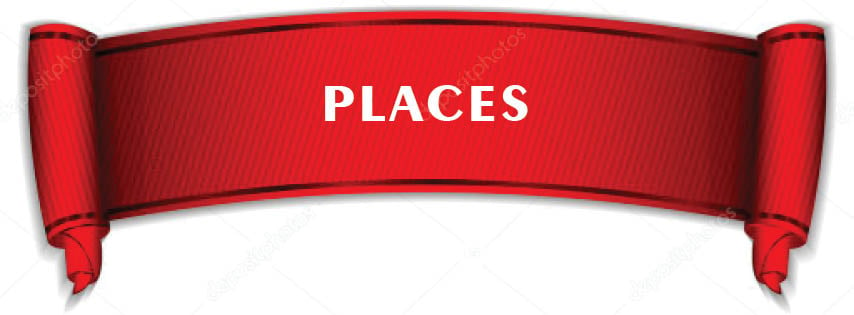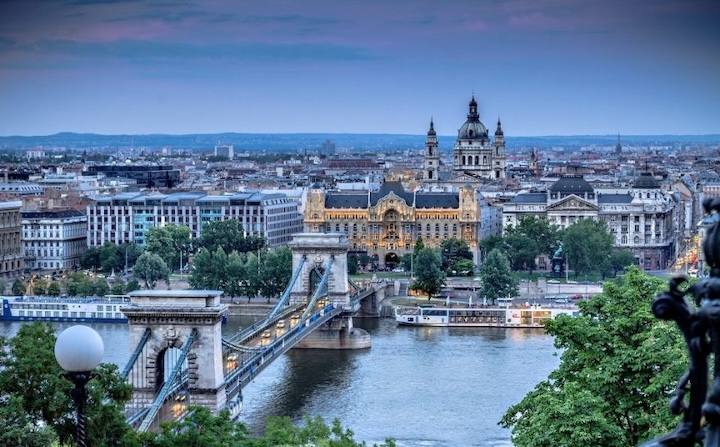How does one capture the tale of two cities that crescendo in modern Buda and Pest? Historically seized and carved up by the Turks, Austria, Nazi Germany and the USSR, all are now gone but for the native Hungarian: who're left to organize their occupier’s retreat, redeem their inalienable rights, connect their two magnificent cities, and to rebuild from the rubble this unique and incredible Republic of Hungary.
When the London-based Gresham Life Assurance Company came to Budapest in 1904, their intent coincided with the interlopers of yesteryear: They wanted to corner the annuities market; control a portion of the economy; and do so from a unique and unquestioned position of power. So when they called upon a local architect to create their presence in town, Zsigmond Quittner decided that location was everything. Perched right upon the bank of the River Danube, Gresham Palace was completed in 1906 opposite of Buda Castle. The two palaces represented the kingdom’s tension between absolute monarchy, free market capitalism and republic.
The American Conservative Union (ACU) and their Conservative Political Action Conference (CPAC) was recently held in Budapest, a first for an American political organization advancing conservative American policies on the continent. The ACU has been looking for ways to bring CPAC to Europe and the conviction grew that Hungary, as one of the engines of conservative resistance to the woke revolution, was the natural place for it.
Conservative U.S. senators and representatives poured into the convention in 2022 where Orbán, a true champion of the right, delivered the keynote address. Hungary’s transformation under Orbán’s exegesis into a bastion of illiberal nationalism has won admirers in the West. But can CPAC Hungary or the ACU reset western civilization? Orbán tweets, “A Trump-Vance administration sounds just right.”
Moreover, can Hungary's 1000+ year history offer insight into America’s future? They’ve built a militarized fence along their southern border, expel almost all asylum seekers, and ban sex education involving LGBT topics in schools. But is Orbán’s seizure of control over universities in a bid to further pursue his ideological project and anti-liberal culture wars on par with a kingdom or republic? “He’s made some smart decisions,” says Vance. “We could learn from in the United States.”
Democratic backsliding, competitive authoritarianism, or a zeitgeist against woke totalitarianism in the cause of liberty? Prime Minister Viktor Orbán joins a millennium of kings and queens on the high seas of Hungarian history with a message for America.Make Europe Great Again
Hungary’s official motto for its turn at the rotating presidency of the Council of the European Union is “Make Europe Great Again.” Europe’s second longest river originates in the Black Forest in Germany, passes 1771 miles through four central and eastern European capitals, and empties into Russia’s Black Sea. So lets start there.
Considered the frontier of the Roman Empire, the Danube flows through and defines the borders of 10 European countries. It’s the principle source of trade and tourism throughout the ancient world, and many have tried to stake their claim in what King Stephen described as "Hungary’s national treasures.”
The Kingdom of Hungary (1000-1946) endured for nearly a century in tact before the Allied Forces redefined her borders in the Treaty of Trianon. Her geography was reduced with the stroke of a pen when Nazi Germany and Soviet occupation redefined a European Middle Power into a land-locked tiny vassal state behind the Iron Curtain.
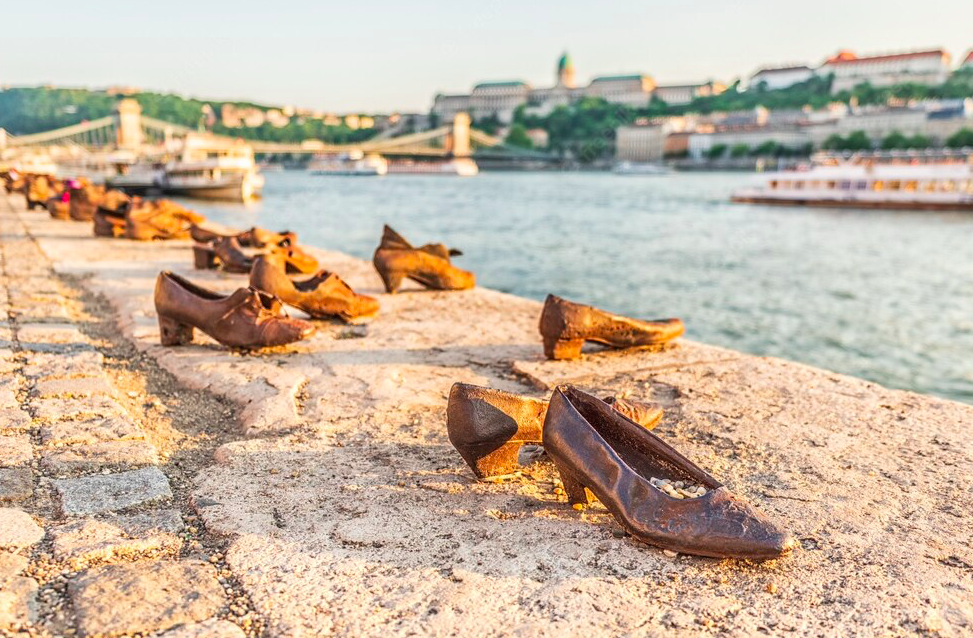
Shoes on the Danube, Buda Castle (background)
Pairs of seemingly endless shoes memorialize the Danube Promenade today, reminding us how really far a far-right ultranationalist party can go. Ordered to remove their shoes by the Arrow Cross Party during WWII, 15,000 Hungarians were shot en masse into the waters and carried away. Nearly 100,000 migrants were deported from Hungary to Austria and Poland’s concentration camps. Yet this story and these people survived through a pipeline of tradition: passing their national identity and ethos from one generation to the next.
Our sojourn began at the Four Seasons Gresham Palace with a Palinka, quietly musing how a medicinal drink had become their signature cocktail? “Da'ling,” our tour guide oozes on the vowel. “Food in our culture is something holy."
Tradition, noted, we scribble down the trend, though she waits for our eyes to return to the conversation. “Our customs, dear, have little to do with calories, nutrients or trends. They're a social contract, a convention of character, they're our unwritten laws."
Together, we pushed into the night; where the demarcation lines between tourist spots and the local’s scene is quite impossible to define. Veal Paprika is a staple everywhere from simple sidewalk cafes, to restaurants with Michelin stars and every traditional home of Hungary, and always paired with a glass from one of the nation’s 22 national regions and time-honored tradition of Hungarian wines.
While Rome takes credit for introducing vines to the region, it was the climate, variation of soils, occupier's influences and the River Danube itself that enabled Hungary to produce and perfect wines along the Medieval timeline. Attila the Hun, the most powerful leader of the Hunnic Empire, preferred Hungarian wine and for this reason. Their 300 million liters confirm that great wine is always a collaboration of many cultures.
Their Andrassy Avenue rivals New York City’s Park Avenue, except for this grand boulevard is a World Heritage site. Grand Victorian era apartments of pale cream colored stone seem piped together by the city’s Gerbeaud Confectioner with the Hungarian Royal Opera House at its center. She opened her doors in 1884 with a telling debut for a kingdom, “The Queen of Sheba.”
A century on, the Hungarian State Opera evolves with “Giselle:” a ballet in 2 acts that seemingly appears to tell the story of a peasant girl whose ghost, after a pre-mature death, returns to protect the nation she left behind.
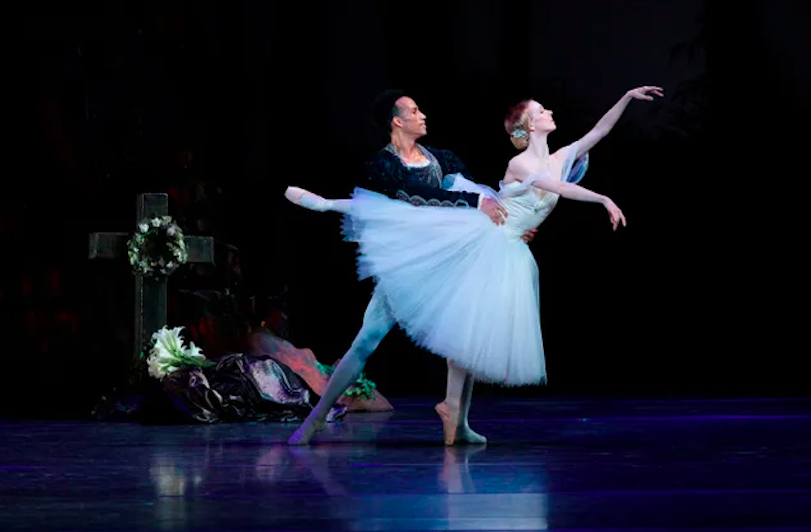
Giselle
Set in the Rhineland during the Middle Ages, it was the Russian Imperial Ballet who revived the libretto from dormancy by choreographing “Giselle” into the single most technically difficult ballet in the world.
Moreover, this masquerade of identity and naiveté crescendo on stage into pointe work and pirouettes that dissect Victor Hugo's poem, Les Orientales. The Greek War of Independence is chronicled in Giselle's transcendent pas de deux: where fouette, grand jete and adage culminate en pointe into 6 contiguous minutes of gravity defying spectacle.
These moments and this story climax not only into seven electrifying minutes of standing ovation, but into the stark realization that we'd been carried away from the splendor of the Hungarian Opera House to a simple cottage in the Rhineland. Turning our back on the darkened stage now strewn with flower bouquets, we somehow knew something more of the Greek Revolution, Ottoman Empire, and foil between liberty and freedom in the modern world.
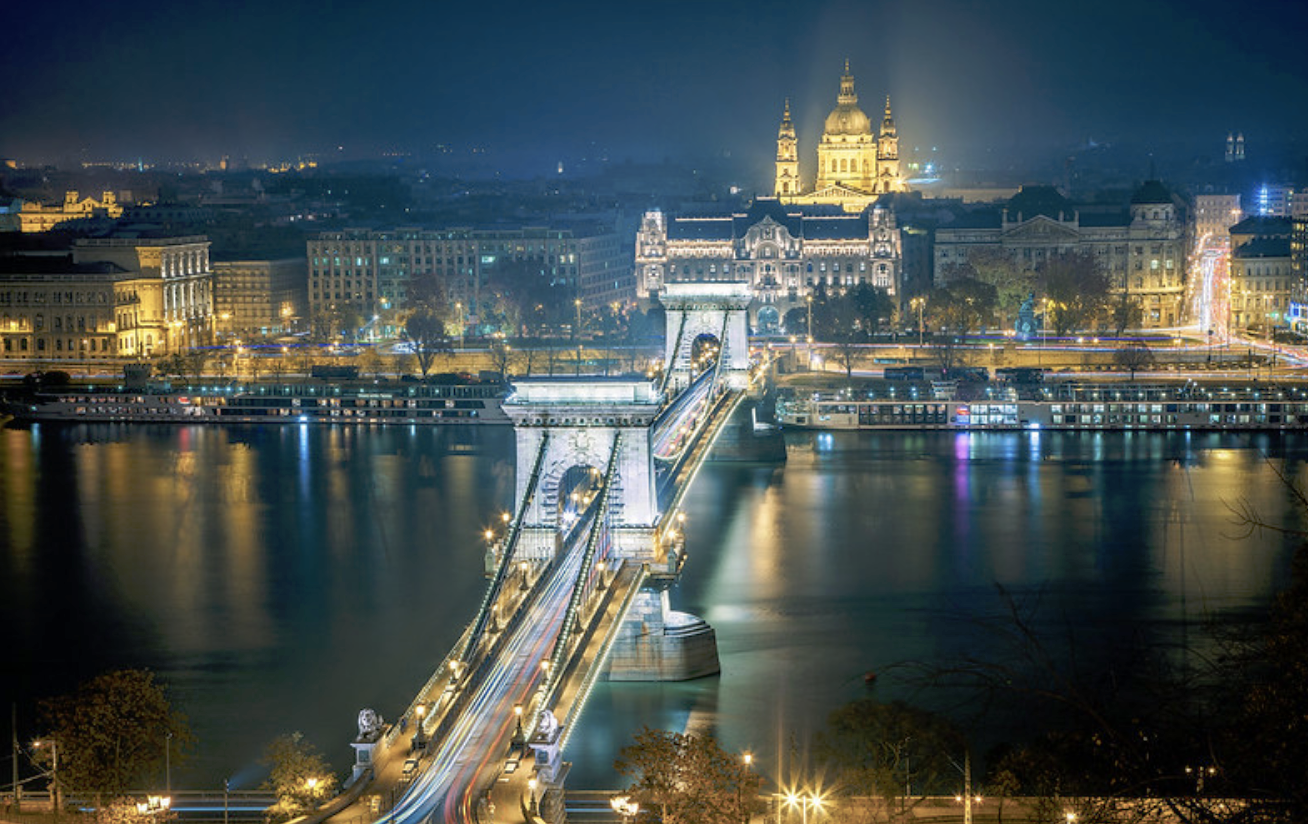
Chain Bridge via Buda Castle and Four Seasons
Our walk back through the Jewish Quarter, over the Chain Bridge, through Hero’s Square and home to the Four Season’s Gresham Palace took us full circle in a week that allowed us not only to peek behind the Iron Curtain, but to see for ourselves how a nation's borders are inseparable from its customs, traditions and culture.
Originally comprised of office space, upscale apartments, and finally army barracks for Soviet soldiers, Isadore Sharp — the son of Jewish immigrants and founder of the Four Seasons Hotels and Resorts — ultimately saved Gresham Palace in 1999 by overseeing that its illustrious past be endowed not by its darkest hour, but rather by a simple Golden Rule, “Do unto others as you would have them do unto you.”
“Hungary is slowly becoming the only country in Europe that can speak to everyone,” says Orbán after visiting Russia, China, and Ukraine. Trump promises peace for the region if elected. But its Isadore Sharp’s Four Seasons Budapest thats prevailed upon the Danube for the last 25 years and welcomed the world to Gresham Palace. As the hotelier puts it, “the real secret here is simply to keep the Buda and Pest of every society in your worldview.”
Archives



